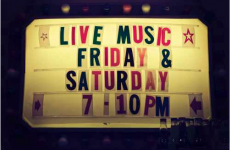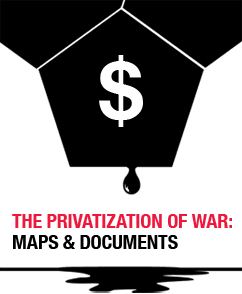Relaciónes laboral
Why haven’t platforms taken over live music?
The limits of the “platform economy”

It is often assumed that the “platform economy” is in the ascendancy, and is taking over more and more economic sectors. Because of this, much research on the matter has focused on characterising and evaluating this change: what are the relative advantages and disadvantages of this kind of work compared to more “traditional” jobs? Should we be optimistic or pessimistic about it? Hence, most current research has looked at the experience of workers in industries which are already highly “platformised” (such as ride sharing, food delivery, or clickwork).
Entre la crisis climática, ecológica y social
¿Hay caminos para la Resistencia y las utopías?
Dario Azzellini: Discurso de inauguración del 15. Colóquio Nacional e 8. Colóquio Internacional do Museu Pedagógico da UESB. Vitoria da Conquista, Bahía, Brasil.
Interview with Dario Azzellini, 26 min.
Commons and Social Transformation
Theresa Alt asks Dario Azzellini about the concept of commons, economic activity that is neither capitalist nor governmental. The commons existed before capitalism, and capitalism requires enclosure of the commons. Now many see commoning as a way to decommodify some resources. Labor power too could be decommodified. But capital tries to take over more and more.
Crowdwork: Kontext und Kompetenzentwicklung in den Ländern Italien, den Niederlanden, Schweden und dem Vereinigten Königreich

Azzellini, Dario. 2024. Crowdwork: Kontext und Kompetenzentwicklung in den Ländern Italien, den Niederlanden, Schweden und dem Vereinigten Königreich. Working Papers No. 14. Working Papers des Forschungsclusters OPAL der Helmut-Schmidt-Universität.
Program
3rd Labour Transfer School 2024 - Buggerru, Sardinia, Italy
Looking forward to meer everyone invited and singed up for the Labour Transfer School 2024!
Dario Azzellini en el I. Congreso Internacional sobre Democracia Comunal
"El trabajo común: bases teóricas y el ejemplo de la empresas recuperadas por sus trabajadores"
Dario Azzellini: "El trabajo común: bases teóricas y el ejemplo de la empresas recuperadas por sus trabajadores"
Intervención en el I. Congreso Internacional sobre Democracia Comunal: "Comunidad, poder popular y autogobierno: prácticas para transformar la democracia", organizado por Paz con Dignidad – Batea Duintasunarekin / Parte Hartuz de la Universidad del País Vasco UPV/EHU. 13.10 - 16.10.2021.
Podcast, 16:48 min
Why the music industry won’t be “Uberized” with Charles Umney and Dario Azzellini
Podcast: Why the music industry won’t be “Uberized” with Charles Umney and Dario Azzellini. Centre for Employment Relations, Innovation and Change, University of Leeds, June 2022, 16:48 min
Dr Charles Umney and Dr Dario Azzellini discuss the limits to the platform economy, and why many occupations are unlikely to be ‘Uberized’, using the live music industry as an example.
über internationale selbstorganisierte Arbeitskämpfe
Interview Radio Corax: "The Class Strikes Back"

Wenn über Arbeitskämpfe gesprochen wird, dann geht es für gewöhnlich um Tarifverhandlungen und Warnstreiks - organisiert durch Großgewerkschaften wie die des DGB oder der CGT in Frankreich. Arbeitskampf kann aber auch anders aussehen - selbstorganisiert, fernab der Großgewerkschaften. Die Mittel selbstorganisierter Arbeitskämpfe sind radikaler. Betriebsbesetzungen, Blockadeaktionen und breite politische öffentliche Kampagnen die über die Sphäre der Arbeit hinaus gehen zählen zu den Mitteln selbstorganisierter Arbeitskämpfe.
You are missing some Flash content that should appear here! Perhaps your browser cannot display it, or maybe it did not initialize correctly.

























